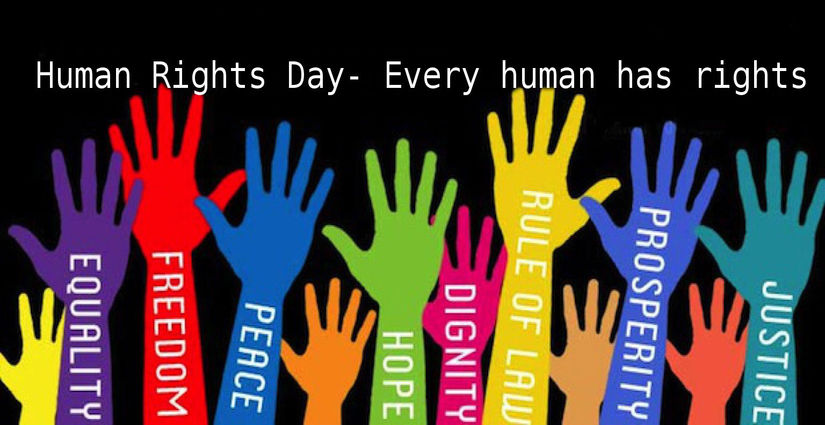WHAT DO WE UNDERSTAND BY ‘HUMAN RIGHTS’?
Human Rights are the rights that every human is entitled to since its birth. They are equal for all human beings irrespective of caste, color, sex, religion, nationality, language, etc. Each of us is entitled to our human rights without any prejudice or discrimination. To trace its origin, these rights are actually a consequence of various historical and social events. This, in turn, lead to a compilation of significant human rights which came to be known as the Universal Declaration of Human Rights (UDHR). And to honor and celebrate the day of its adoption, the day is termed as the Human Rights Day.
THE W’s OF HUMAN RIGHTS DAY- WHAT, WHY AND WHEN
10th December 1948 was the day when the Universal Declaration of Human Rights was proclaimed and adopted by the United Nation’s General Assembly. In the Declaration, the UN included 30 articles of human rights. The foundation of his Declaration rested upon the tri-pillar of “Freedom, Justice and Peace”. It was through these three pillars that the 30 articles of human rights were derived. Thus, annually, 10th December is celebrated as the International Human Rights Day to honour this event.
This year the High Commissioner’s office of the Human Rights would be celebrating the 67th anniversary of the UDHR and the ’50th anniversary of the two International Covenants on Human Rights‘. These two International Covenants- International Covenant on Economic, Social and Cultural Rights and the International Covenant on Civil and Political Rights, were adopted by the United Nations General Assembly on 16th December 1966. And along with the UDHR, it constitutes the International Bill of Human Rights which states the cultural, economic, social, civil, and political rights of each individual which are his birth rights.
CELEBRATION OF HUMAN RIGHTS DAY
Just like every United Nations annual event has a theme, Human Rights Day too has a theme, which helps to concentrate and to implement the objectives better. This year’s theme is- “OUR RIGHTS! OUR FREEDOMS! ALWAYS”. The day is marked by several cultural events, debate, political meetings or conferences, art exhibitions, movie/documentary screenings, discussions on the theme, and much more. Such programs, events and exhibitions are displayed so as to make people realize and identify their human rights and draw attention to such places where there is a dire need of awareness about the same. Not only international representatives but also, various government and non-government agencies, participate in these events. Apart from these, the main attraction of this day is the tradition of awarding the United Nations Price In The Field Of Human Rights and the Nobel Peace Prize.
HOW FAR REACHING IS IT?
Despite the claims of every individual being equal, there is no doubt that there are places and people who are devoid of their basic rights like education, clean water, etc. In the case of Africa, where Independence wasn’t achieved until 1994. The UDHR was proclaimed in 1948 while Africa was still colonized. Thus, in 1994 in Africa, 21st March was declared as the Human Rights Day by Nelson Mandela, in the remembrance of the 1960 Sharpeville Massacre. Similarly, people of different sexes or sexual preferences are fighting for their rights. Taking the case to home, recently, Kerala became the first to have a Transgender Policy on 12th November. The aim of this policy is to allow them equal rights, opportunities, resources, benefits along with a right to live a dignified life. On the other hand, the LGBT community is still fighting for their rights to mate and marry. Same-sex marriage is not only illegal in most of the countries but also, homosexual love-making is looked upon as a criminal act. While each year on this day, there is hue and cry on the topic of human rights and various regimes are planned, on the other hand, the most fundamental of the rights are devoid to some.
Thus, it is quite a significant matter to ponder upon whether these yearly plans are far reaching or just far-fetched. It’s no use if these rights are selectively ensured to individuals. No doubt that there is a need for awareness, but also, a need for reality-check. To sum up, this little quote from Volker Beck conveys it all- “ Human Rights that do not apply to everyone are not human rights at all.”
